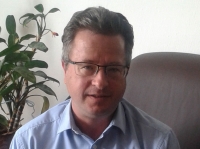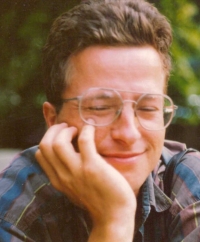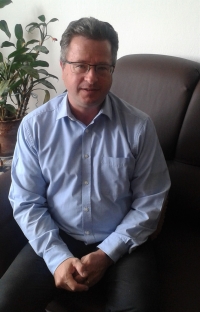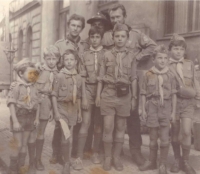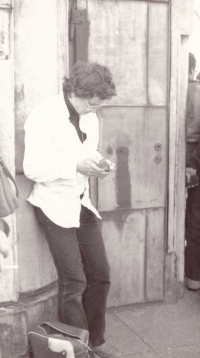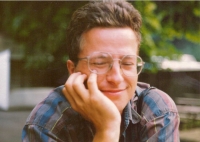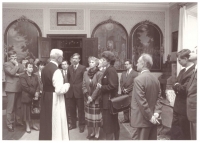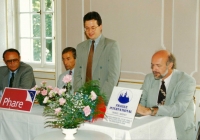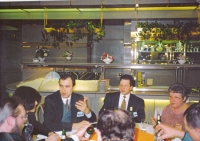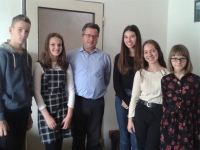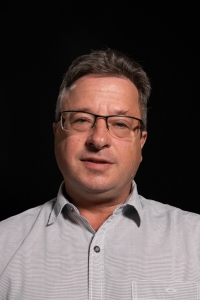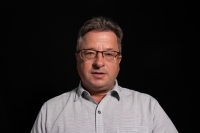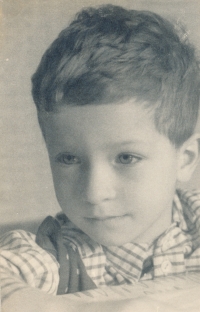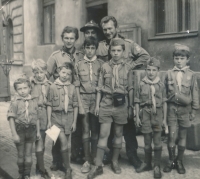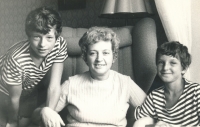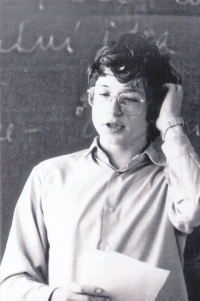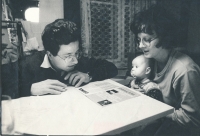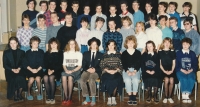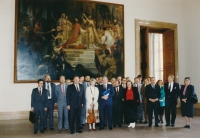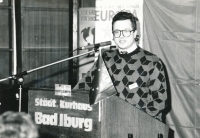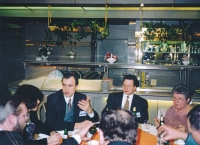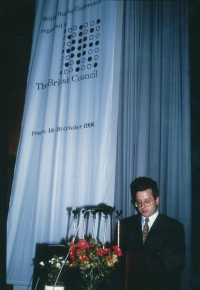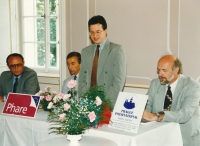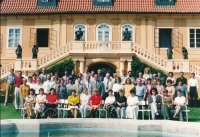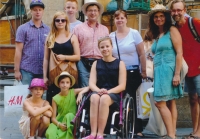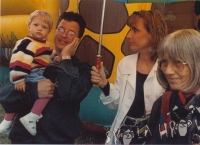They made you feel like you couldn‘t trust anyone anymore

Stáhnout obrázek
Hynek Krátký was born on 7 August 1961 in Prague. His father Věněk Krátký worked as a clerk, his mother Irena, née Hanfová, as a nurse. The family lived near Ladronka Park, where part of the occupation army set up a camp in August 1968. After graduating from grammar school, he began to study Czech language and history at the Faculty of Arts of Charles University. Already at the beginning of his studies in 1980, he was interrogated by State Security about the ‘last bell’ celebration that he and his classmates were planning to organize at the grammar school. After graduation he became a teacher at the secondary medical school, where he also taught Monika Kaplanová. Through Voice of America broadcasts, he learned about her brothers‘ activities and eventually became close to the entire Kaplan family and other people in Christian dissent. He participated in a number of demonstrations; in January 1989 he was arrested on his way to Všetaty, where he wanted to commemorate the anniversary of Jan Palach setting himself on fire. During the 17 November demonstration, he was walking in front of the procession and witnessed the occupation of the National Street by members of the armed forces. He was actively involved in the events of the Velvet Revolution. After 1990, he worked as an officer in the Office of the Chamber of Deputies and later at the Ministry of Education, Youth and Sports. He was also involved in local politics. He worked in the IT and telecommunications sector for almost two decades, returning to education as a secondary school teacher in 2012. At the time of recording in 2022, he was teaching at the Deutsche Schule Prag and living with his family in Prague.
